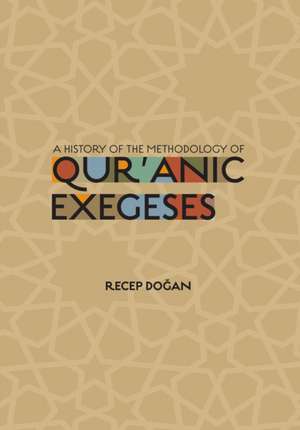A History of the Methodology of Quranic Exegeses
Autor Recep Doganen Limba Engleză Paperback – 6 oct 2015
Preț: 132.13 lei
Nou
Puncte Express: 198
Preț estimativ în valută:
25.28€ • 26.47$ • 20.92£
25.28€ • 26.47$ • 20.92£
Cartea se retipărește
Doresc să fiu notificat când acest titlu va fi disponibil:
Se trimite...
Preluare comenzi: 021 569.72.76
Specificații
ISBN-13: 9781597843805
ISBN-10: 1597843806
Pagini: 312
Dimensiuni: 168 x 239 x 20 mm
Greutate: 0.48 kg
Editura: Tughra Books
ISBN-10: 1597843806
Pagini: 312
Dimensiuni: 168 x 239 x 20 mm
Greutate: 0.48 kg
Editura: Tughra Books
Notă biografică
Recep Dogan, PhD, is a lecturer at Charles Stuart University, Islamic Studies, Australia. He completed his Bachelor of Divinity (Islamic Theology) at Ankara University, Turkey. He then continued on at Ankara University to complete his degree for Master of Islamic Studies and later a PhD in the Islamic Studies Department, Philosophy of Religion.
